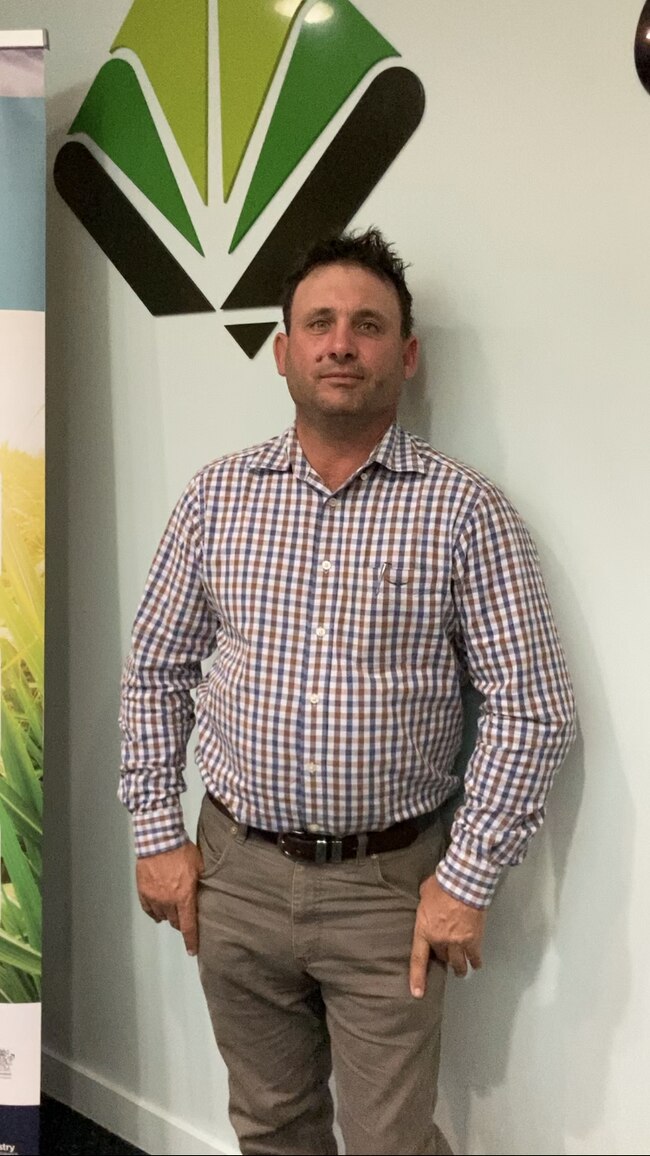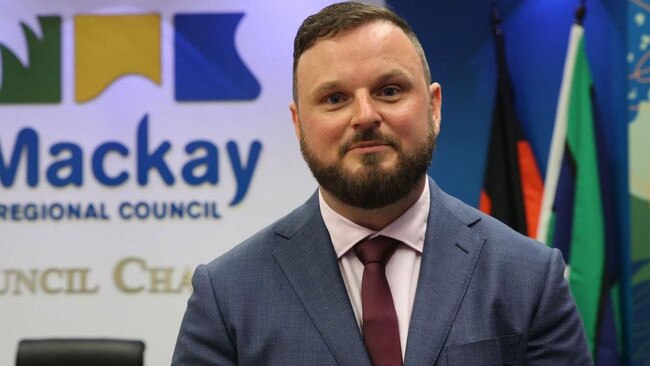Cane farmers’ rates rise by up to 90 per cent, Mackay Regional Council lays blame on Queensland government
In a region built on the back of the sugar industry, canegrowers only starting to clawback from “skint” seasons are reeling over rate rises with one recording a jump from $9,000 to $13,000.

QLD News
Don't miss out on the headlines from QLD News. Followed categories will be added to My News.
Mackay canegrowers say council is treating them as “little more than cash cows” after rates for some primary producers increased by 90 per cent compared to last term.
However, Mackay Regional Council says canegrowers’ anger is misdirected and the rate rises are not their doing, but rather the result of the state government’s land valuation increases which came into effect on June 30.
Mackay Canegrowers deputy chairman Joseph Borg, a cane farmer and ratepayer, said his half-yearly rates bill had jumped from $9,000 to $13,000.
“Unfortunately in this situation, the council is using growers as little more than cash cows to fund its operations,” he said.

Mackay Canegrowers had initial discussions with the council earlier in the year, but had not heard anything further, until primary producers received their rates bills.
“We met with the Mayor, Deputy Mayor and CEO and their response to our situation was that no decision had been made and they would come back and meet with us when the decision had been made and discuss the situation,” Mr Borg said.
“Unfortunately that meeting never materialised and we are still waiting.
“What did materialise was the rates notices were sent out to our members and some of our members have had up to 90 per cent increases in their rates from last term to this term.”
Mr Borg said Mackay canegrowers were now paying similar rates to commercial and industrial premises in Paget.
“It is probably unfortunate that there are more votes in Paget than what there is in the sugar industry, not forgetting that the sugar industry is what the Mackay township was originally founded on and built on,” he said.
But Mackay Regional Council chief executive Scott Owen said almost 60 per cent of cane farming properties had an overall rate reduction.
“Council reduced the cents in dollar for cane growing categories by 20 per cent following the significant increases to land valuations by the state government,” he said.
“Last year, the rate was 2.78 cents in the dollar, and this year it is 2.25.
“Council has encouraged all residents that experienced such significant land valuation increases to raise objections with the state, as this is out of council’s control.”

In March, State Government Valuer-General Laura Dietrich announced more than 80,000 new valuations across Mackay, Gladstone, Barcaldine and Blackall-Tambo. She said Central Queensland primary production land had shown significant increases in value since their last evaluation.
“The overall primary production increases include 130 per cent in Blackall-Tambo, 153 per cent in Barcaldine, 60 per cent for Mackay and 70 per cent in Gladstone,” Ms Dietrich said at the time.
The Valuer-General’s decision to revalue a local government area is based on factors including a property market survey, the timing of the last valuation and consultation with local governments and industry.
Several factors influenced values of the properties including overall confidence in the rural sector, strong beef and commodity prices, record rural sales, and producers seeking to acquire more land in order to expand their herds.
Mackay Canegrowers chairman Kevin Borg said cane farmers operate within the margins of world cane prices.
“We can’t pass our costs on. Whereas other businesses in the regional community in Australia can – whatever their costs are they can just charge more for their product,” he said.
“Yes, we do have really strong prices at the moment, but we are playing catch up in that arena and we’ve had a number of skint years as far as sugar prices have gone.”





